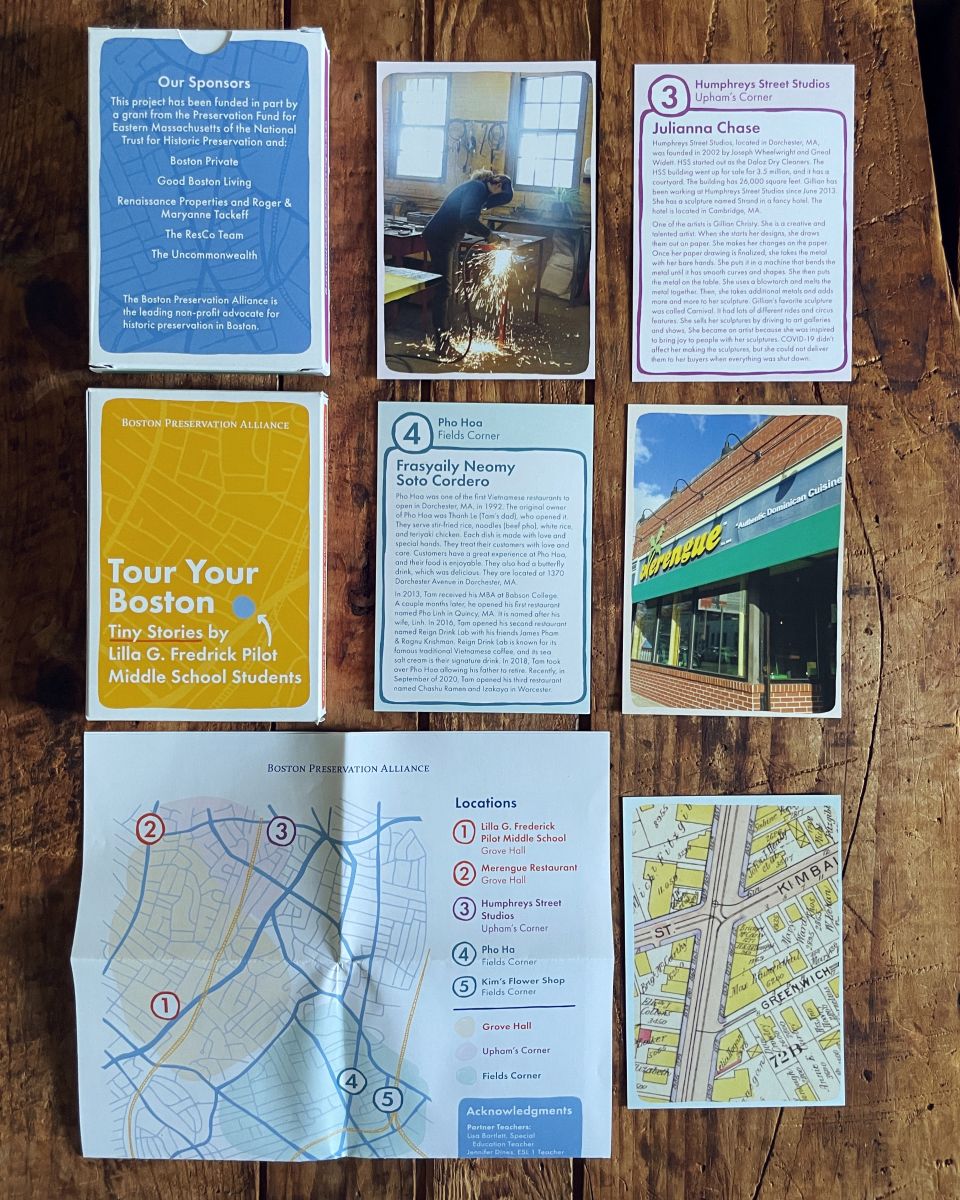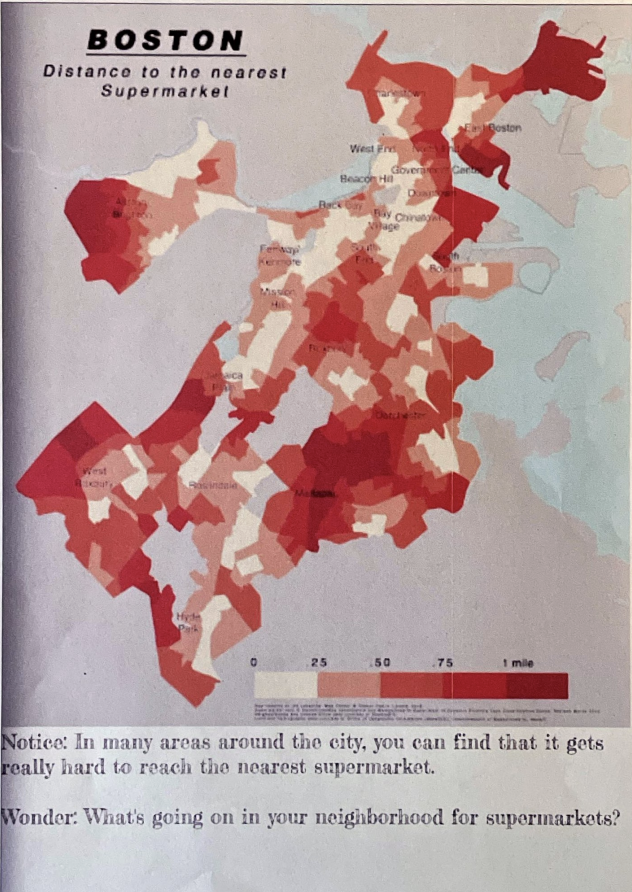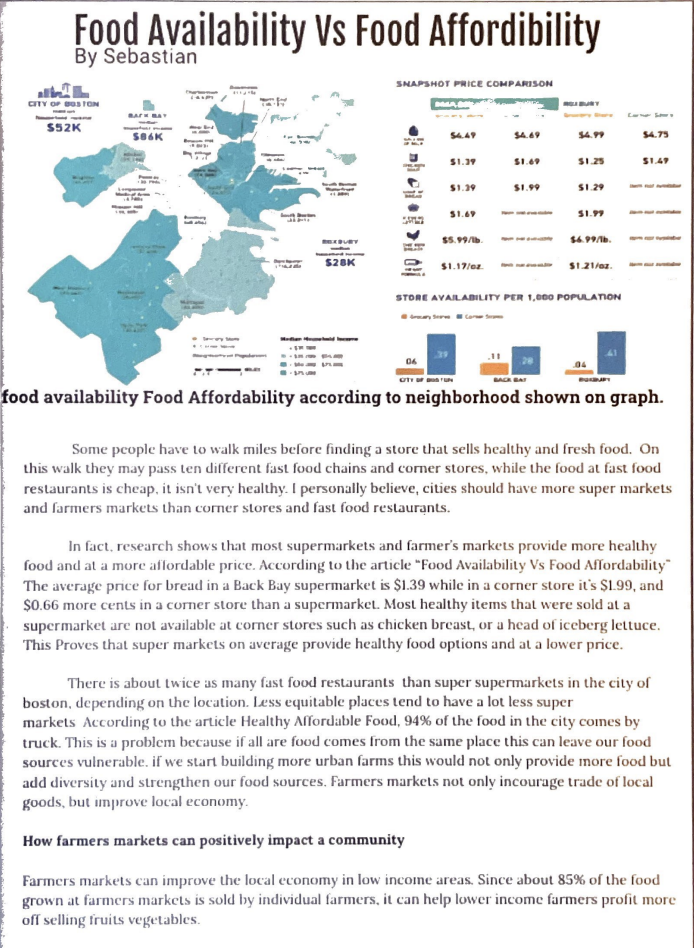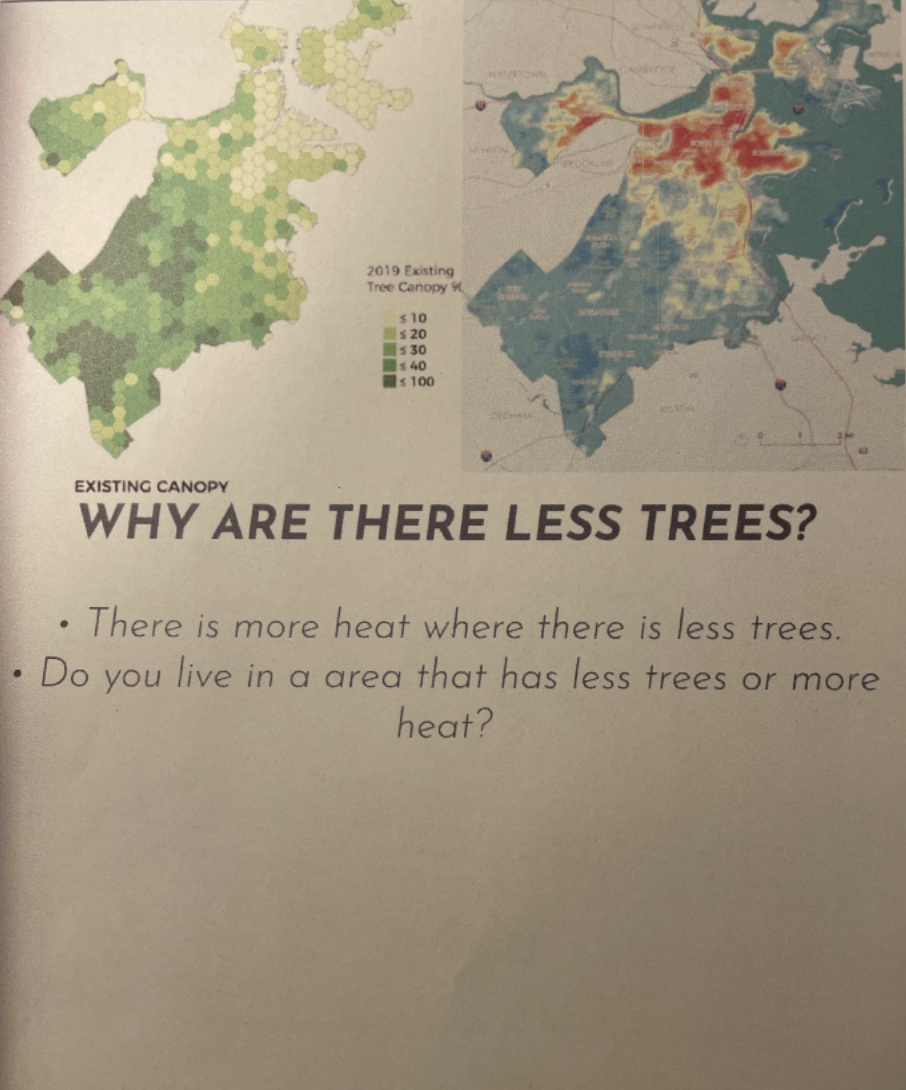The Map Center’s K-12 education department often revisits our core programs to make them more relevant and engaging, as well as develops new initiatives to bring cartographic literacy to students as they wrestle with the challenges presented by the past, present, and future. One important way we work is to collaborate with educators to integrate geographic materials and approaches into the curriculum they design for their classes.
This past school year, we worked directly with 33 schools. Some programs were held remotely while others were held at schools or here at the Map Center. Among these, five partner teachers from Boston Public Schools incorporated Map Center resources into Boston-based units of study that resulted in interesting student projects.
Mapping proposals for the future
At the Haley Pilot School in Roslindale, middle school students researched different aspects of Mayor Wu’s Planning for a Boston Green New Deal & Just Recovery, including proposals for an urban climate corps, transportation justice, food justice, the urban tree canopy, and renewable energy. As part of the research process, Map Center educators presented a map interpretation and evaluation lesson, asking students to investigate two topic-relevant maps, look for useful information, and think about how one map relates to the next. At the conclusion of their study, student groups created short magazines to inform readers about their subjects, showcase maps from our lesson and those they discovered in other resources.
Tour your Boston

The card deck encourages folks to join along and Tour Your Boston.
Earlier this year, Lilla G. Frederick Pilot Middle School teachers partnered with the Boston Preservation Alliance for a class project that “shares Boston history through the eyes of young Urban Curators.” Students visited neighborhood businesses—Merengue Dominican restaurant, Kim’s Flower Shop, Vietnamese restaurant Phở Hòa, and Humphreys Street Studios—spoke with small business owners, artists, and residents, and wrote “tiny stories” featuring these Dorchester landmarks. As part of the project, Map Center educators taught students how to use our digital Atlascope tool to explore the history of their locations, learning how to make sense of historical maps and consider how our city has changed over time. The students' “tiny stories” were made into a set of cards that encourages readers to visit local businesses and to recognize their value in keeping communities together.
Details from Atlascope show up in the cards as part of Dorchester’s small business story, and you can hear more about the project from the students themselves in this short video:
StoryMaps by students
Seniors at the Margarita Muñiz Academy, Boston’s only two-way Spanish-English high school, used the last part of their school year to reflect on the importance of nature in their lives, spending part of their weeks at Hale Education’s Intrepid Academy. For their final projects, Director of Education Michelle LeBlanc introduced students to Esri StoryMaps, a presentation platform that makes integrating GIS maps into a digital narrative easy to do. The Map Center K-12 team has had a long-term relationship with the Muñiz Academy, from teaching weeks-long mini classes to showing students how to map data sets using ArcGIS Online to leading workshop sessions on how to find and evaluate digitally-produced data maps. Among this year’s final projects, students’ StoryMaps address urban wildlife, biophilic design, the benefits of curanderismo, and integrating nature in prison rehabilitation programs.
As the 2021-2022 school year wraps up, we want to recognize the creative and enriching curriculum being developed in the Boston Public Schools. Our partner teachers are committed to their students learning important skills while creating projects that matter to our city and preparing them for roles of active citizenship. We are honored to be part of the process as young people consider how to imagine the world, its challenges and gifts, through a geographic lens.
Our articles are always free
You’ll never hit a paywall or be asked to subscribe to read our free articles. No matter who you are, our articles are free to read—in class, at home, on the train, or wherever you like. In fact, you can even reuse them under a Creative Commons CC BY-ND 2.0 license.


